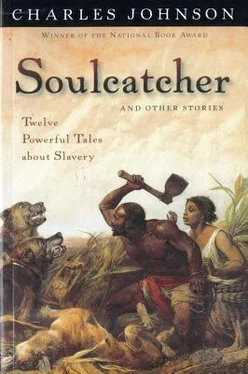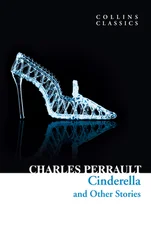Other leaders of the colored community took the podium for the next few hours, all passionately arguing to their unlettered brethren the position of emigration. At various times the assembly became raucous, with members of the audience shouting their positions from the floor, so that Rev. Allen found it necessary to bang his gavel over and over, calling for order. "Please settle down," he said. "Everyone will have a chance to speak. Gentlemen, remember what we are deciding here. It has taken the American Colonial Society to bring this crisis to the surface. We are at, I daresay, a crossroads. Future generations will judge us by our sobriety. Our wisdom — or our lack of it! We are voting — be advised — not merely on the future position of the Philadelphia Negro vis-a-vis America, but on which direction all our people will take in the future. Now, if you'll look to the rear of the room, you'll see ushers are moving down the aisles, each carrying a basket filled with ballots. I ask you to take one. lake a prayerful moment to review the discussion you've heard, then vote knowing your decision carries as much weight for the direction of this nation as that of the white men who assembled at the Constitutional Convention."
Concluding his instructions, Rev. Allen went back to his seat to vote, Ten minutes later, the votes were collected. The ushers took them into the back of the church to tally "yeas" and "nays" for the Society's proposal. As they worked, Bethel's choir sang two beautiful hymns. Before they could begin a third, one of the ushers, a young man, brought a slip of paper to Rev. Allen, who again stepped up to the podium. Those gathered grew quiet. Rev. Allen cleared his throat.
"You, the people, have voted unanimously against the position of your leaders," he said. "You have rejected returning to Africa. Whatever our future is to be, you have decided that it will be here, on these shores. God help us all…"
IN THAT BOSTON MARKET on a Thursday in 1853, there were two men, one black, one white, who were as intimately bound, in a way, as brothers, or perhaps it was better to say they were caught in a macabre dance, one that stretched from rural South Carolina to Massachusetts over a period of three long months of hiding, disguises, last-minute escapes, name changes, and tracking leads that led nowhere until it brought them both here to the bustling open-air market perched near the waterfront on a summer afternoon.
They were weary, these two. Hunter and Hunted.
The Hunter paused just at the periphery of the market, breathing in the salt-laced air, looking at the numerous stands filled with freshly baked bread, a variety of vegetables, fish caught earlier that day, and handicrafts — wood carvings, colorful quilts, and hand-sewn leather garments-sold by black and white Bostonians alike. The Negroes, he noticed, including the one he was looking for, had set up their stands toward the rear of the market, separating themselves from the others. A gnarled, little merchant with a Scottish brogue, and wearing a yeoman's cap and burnoose, suddenly pulled at the sleeve of the Hunter's jacket. He pointed with his other hand at boots on the table beside him. Irritated, the Hunter shook loose his arm from the merchant's grasp, then moved on a few paces through the crowded market, tilting down his hat brim a bit to hide his face, and positioned himself to one side of a hanging display of rugs. From there he could see the Negro he wanted but was not himself in plain view. He reached into a pocket sewn inside his ragged, gypsy cloak, felt around his pistol — a Colt.31—and his fingers closed on a folded piece of paper. The Hunter withdrew it. He opened it slowly, as he'd done nearly a hundred times in the last three months in dozens of towns in North Carolina, Virginia, Pennsylvania, and New York, in daylight and dark, when the trail he was following went cold and he sat before a campfire, wondering how long it would be before he would collect his bounty. The paper had been folded and creased so often a few of the words on it were feathery. In the upper right-hand corner he saw the long-dried stain of dark blood — his brother Jeremiah's — and below it this notice:
RUN away from Charlotte on Sunday, a Negro slave named fRANK, well known about the Country as a craftsman, has a scar on one of his Wrists, and has lost one or more of his fore Teeth; he is a very resourceful Fellow, skilled as a smithy and saddle-maker, loves Drink, and is very often in his Cups, but surly and dangerous when sober. Whither he has run to, I cannot say, but I will offer $200 to have him returned to me. He can read and write.
AAPRIL 2,1853 JUBAL CATTON
From where he stood, the Hunter had a side view of a black craftsman seated before a table of wood carvings, talking to a nearby old Negress selling fish and a balding black man hawking produce. The Hunter was sure this was Frank. When last he'd seen him — just outside Norfolk — he was wearing Lowell pants and a jerkin. Today he was dressed better in a homespun suit. Under the table, he noticed, there was a flask, which the Negro occasionally lifted to his lips, then slid back out of sight. For a time, the Hunter was content simply to study him. He didn't want to rush. That's what Jeremiah always told him: You move too quick, you'll startle the prey. When the moment's right to move, you'll know. Now that he nearly had Frank trapped, the Hunter wished his brother could be there, at the market, for the catch. But Jeremiah was back in Charleston. Blind. When Frank bolted from Jubal Catton's farm, he'd stolen his master's Walker.44, and when they found him hiding in a barn, Frank fired at Jeremiah's face from five feet away, missing him — the nigger was a bad shot — but the blast seared his brother's eyes. Yes, thought the Hunter. He wished like hell Jeremiah was here now. They both still wanted that reward. But this runaway had made the hunt personal. During the first month he pursued Frank, his intent was to kill him. Then, as the weeks drew on, he realized slavery was worse than death. It was a little bit of death every day. It was even worse than being blind.
He would take him back, the Hunter decided. Jeremiah'd want it that way.
The Hunted reached under his table, grabbed the bottle by its neck, then drank just enough to take away the dryness in his throat. He never knew exactly why, but for some reason he'd always fought better drunk than sober. And it looked like he had a fight coming now, though he had thrown away his master's gun and had nothing to defend himself with but his bare hands. He thought, All right, if that's the way it has to be. He'd seen the white man — his name was Clement Walker — the moment he entered the market, or rather his nerves had responded, as they always did, when a soulcatcher was close by. He could smell them the way a rabbit did a hound. It was the way they looked at colored people, he supposed. Most whites didn't bother to look at you at all, like you were invisible. Or as unimportant as a fence post. Or if they were afraid of you, they'd look away altogether. But not soulcatchers. They wanted to see your face. Match it with a description on a wanted poster. Oh yes, they looked. Real hard.
That was how he'd spotted the Hunter. But he didn't need that sixth sense anymore to recognize Walker. The Hunted rubbed his left shoulder, massaging the spot where the Hunter had months ago left a deep imprint of his incisors — this, during their tussle after he shot at Jeremiah Walker. No question he'd know Clement anywhere. The man was in his dreams or — more precisely — his nightmares since he left his master's farm. Not a day passed when Frank didn't look over his shoulder, expecting him to be there, holding a gun in one hand and manacles in the other. It was almost as if he was inside Frank now, the embodiment of all his fears.
Читать дальше












